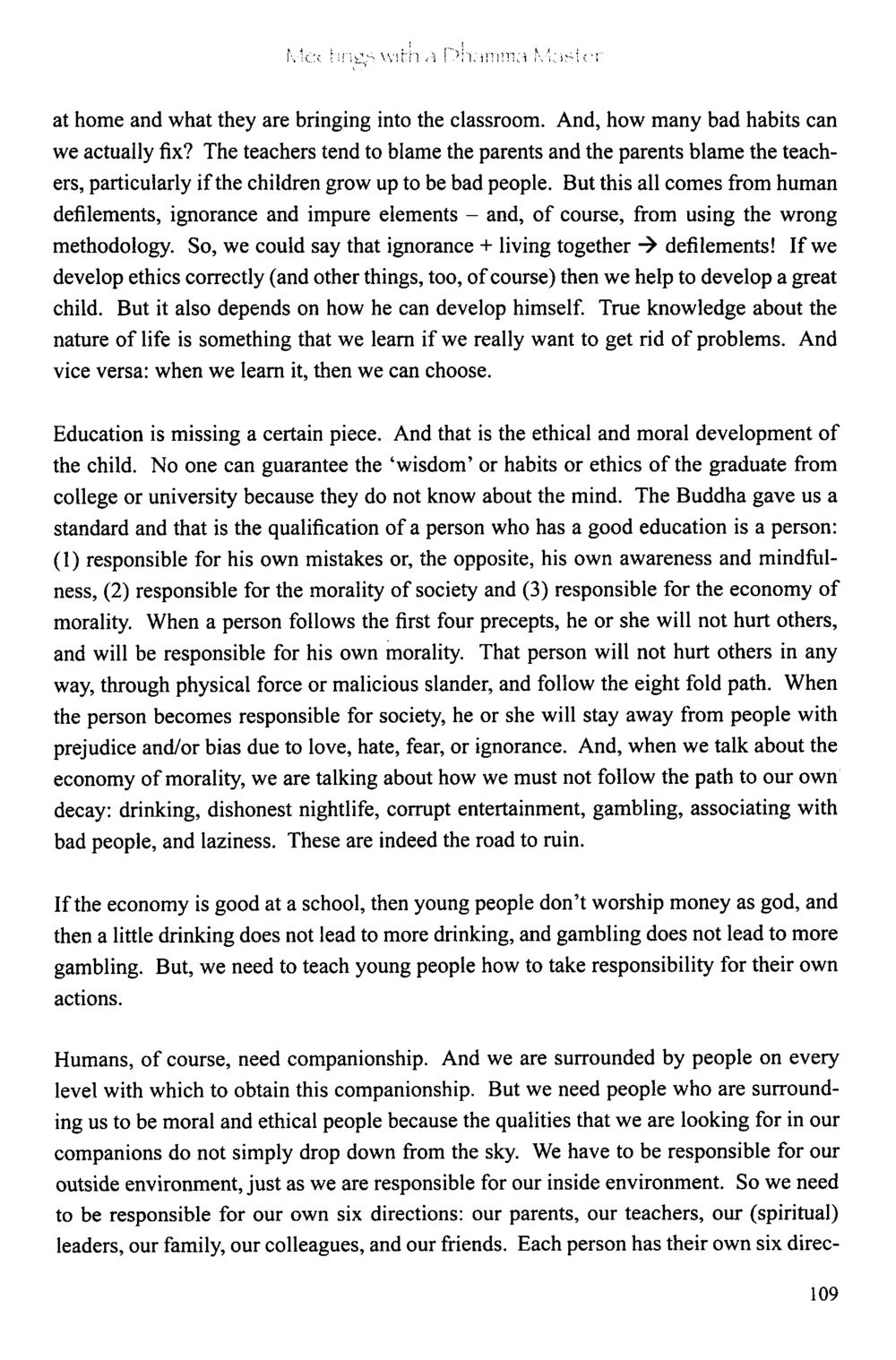Ethical and Moral Development in Education : หน้า 110/164
The Meeting with a Dhamma Master : หน้า 110/164 Exploring the importance of ethics in education, addressing blame between teachers and parents, and promoting responsible behavior in children.
0 ครั้ง

สรุปเนื้อหา
This text discusses the critical role of ethical and moral development in education. It highlights the blame game between parents and teachers when children exhibit bad behavior, asserting that these issues stem from human defilements and ignorance. The author emphasizes that developing ethics is essential to nurturing well-rounded children. True knowledge and awareness are keys to overcoming life’s challenges. The text critiques the current educational system for lacking focus on moral education and the mind. Citing Buddhist principles, it outlines qualifications of educated individuals, emphasizing personal responsibility, societal morality, and understanding the economy of morality. Responsibilities include avoiding harmful behaviors and fostering constructive environments that promote ethical values. Furthermore, it stresses the necessity of surrounding oneself with moral companions and being accountable for both internal and external influences in one’s life.
หัวข้อประเด็น
- Importance of ethics in education
- Blame between parents and teachers
- Development of children’s character
- Buddhist principles in education
- Personal and societal responsibility
- The role of environment in moral development
ข้อความต้นฉบับในหน้า
หน้าหนังสือทั้งหมด




































































































































































